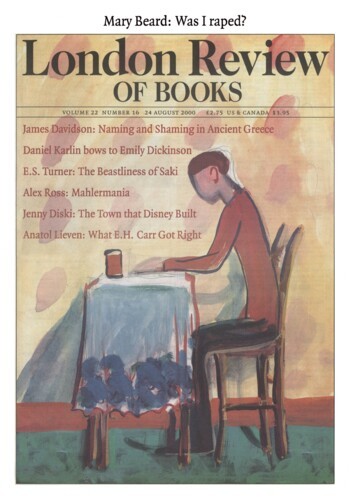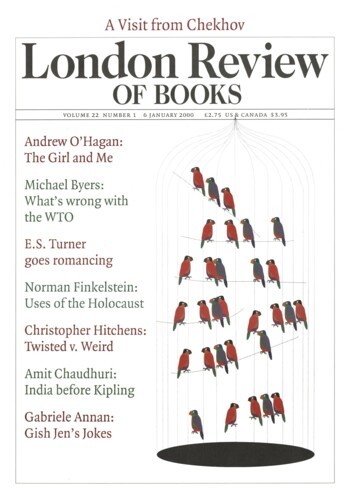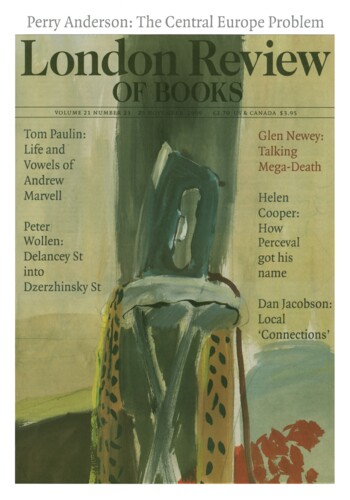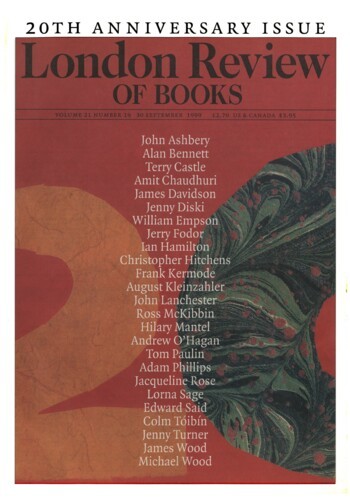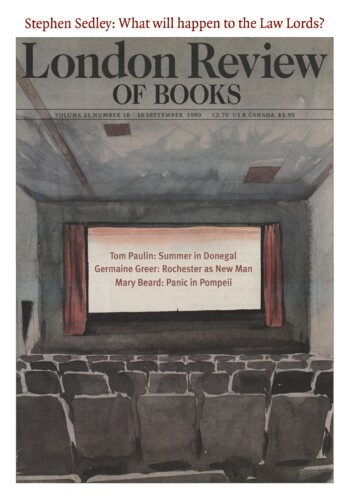Poem: ‘The Mechelen Incident’
Tom Paulin, 24 August 2000
On the other hand 10/1/40 was a good day at least by January standards – a crisp cold clear day When Majors Reinberger and Hoenmanns allowed their Me109 a virtual fighter – no light transport plane made of cloth and string – allowed their sturdy all-weather plane to get blown across the Rhine and a chunk of Holland by an eastnortheast wind – not a wind a mere breeze of...
